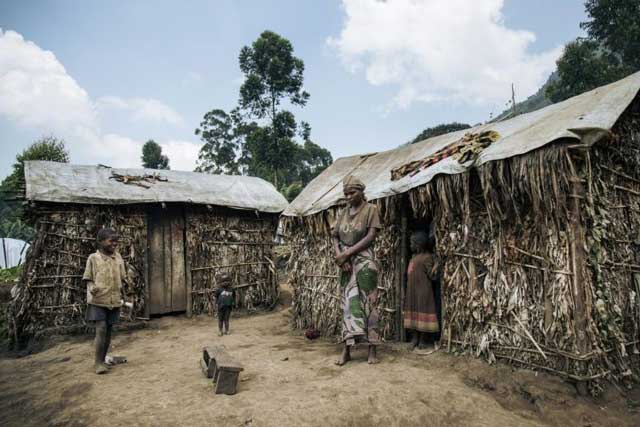
Masisi, DR Congo | AFP | In eastern DR Congo, thousands have fled violence to camps in the remote mountain forests where they battle cholera, hunger and misery in a forgotten humanitarian disaster.
Eastern Democratic Republic of Congo has long struggled with violence from several militia groups, a legacy of the 1990s Congo wars that dragged in neighbouring Uganda and Rwanda.
The region is now also the epicentre of the latest Ebola epidemic, which has killed more than 2,200 people since August 2018.
Away from the Ebola headlines, tens of thousands of people are scattered in squalid camps across the mountains around Masisi, where they have fled, traumatised by violence, starving and with no chance to return home.
“I fled my village after clashes broke out,” said Gentille, a 26-year-old Hutu Congolese. “We could no longer go to the fields. Many people died because clashes broke out in the middle of the village, very early one morning.”
That fighting broke out in November and December involving one of the so-called Mai-Mai militia, the Nduma Defense of the Congo-Renove (NDC-R) and a coalition of other armed rivals, according to UN experts.
Now Gentille, a mother of five lives in a camp of 8,000 displaced people.
Along with the unsanitary conditions, a lack of clean water and food, since late last year, a cholera and measles outbreak has worsened life in the camps.
Several anti-cholera treatment units have been opened by Doctors without Borders (MSF), which reports 520 cases and two deaths.
“Three of my children got cholera. One died,” says Gentille. “Here in the camp, we do not have enough toilets. More than 180 people use the same toilet. Since it is always busy, the children defecate outside and all around.”
Around 685,000 displaced people survive in the mountainous areas, estimates MSF, a figure the aid group hopes will draw attention of the donors.
A year after coming to power, President Felix Tshisekedi has promised far-reaching reforms and a crackdown on corruption. But militia violence and ethnic clashes still undermine security of populations in the east.
 The Independent Uganda: You get the Truth we Pay the Price
The Independent Uganda: You get the Truth we Pay the Price



